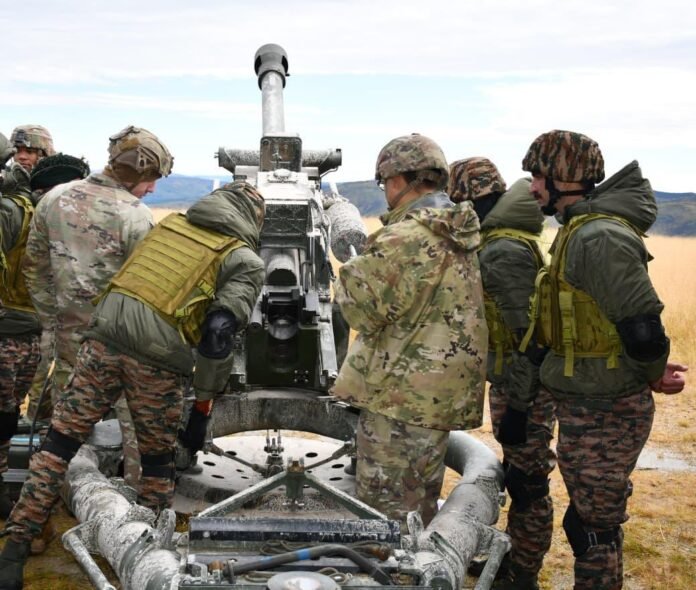India and the US are taking their defense partnership to new heights with the 21st edition of the joint military exercise ‘Yudh Abhyas 2025’. Soldiers from both armies fired up live drills at Fort Wainwright in Alaska, showcasing their growing teamwork on the battlefield.
The exercise kicked off last week with a vibrant opening ceremony at the same location. It will run until September 14, bringing together troops for intense training sessions. “In Fort Wainwright, Alaska, Indian Army and US Army warriors conducted live fire drills today,” the Embassy of India in Washington shared on X (formerly Twitter) on Monday, India time.
Around 450 soldiers from each side are diving into field exercises, command post simulations, and chats with experts to boost their operational sync. Recently, during field training, Indian and US troops practiced battle drills side by side, honing skills for real-world scenarios.
The Indian team, made up of 450 personnel led by a battalion from the Madras Regiment, landed in Fairbanks on August 31. They’re teaming up with US soldiers from the 1st Battalion, 5th Infantry Regiment (“Bobcats”), who belong to the 1st Infantry Brigade Combat Team (Arctic Wolves), 11th Airborne Division.
This year’s Yudh Abhyas stands out as one of the biggest bilateral military exercises for the Indian Army, with a massive troop mobilization. It focuses on mountain and high-altitude ops in sub-arctic conditions, plus heliborne and air-mobility tactics supported by artillery and aviation. Troops are also tackling electronic warfare, surveillance, counter-drone systems, medical evacuations, combat casualty care, and live-fire drills to ensure smooth interoperability.
Yudh Abhyas has evolved into a key, high-stakes Army-to-Army event and a pillar of India-US military cooperation. India runs more military exercises with the US than any other nation, as the Indian Embassy points out. “India conducts more military exercises with the US than with any other country. These include Yudh Abhyas, Malabar, COPE India, Vajra Prahar, Tiger Triumph, and several others. They help build interoperability and trust. It shows how our two democracies keep pushing for peace, security, and prosperity, especially in the Indo-Pacific region,” the Embassy added.



